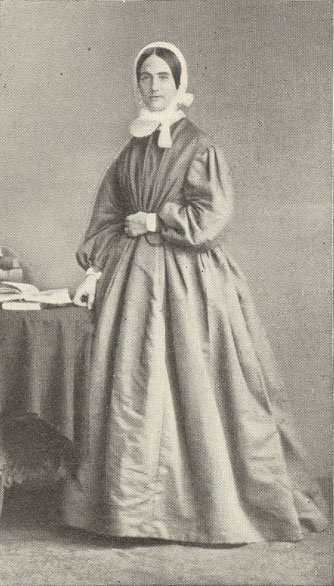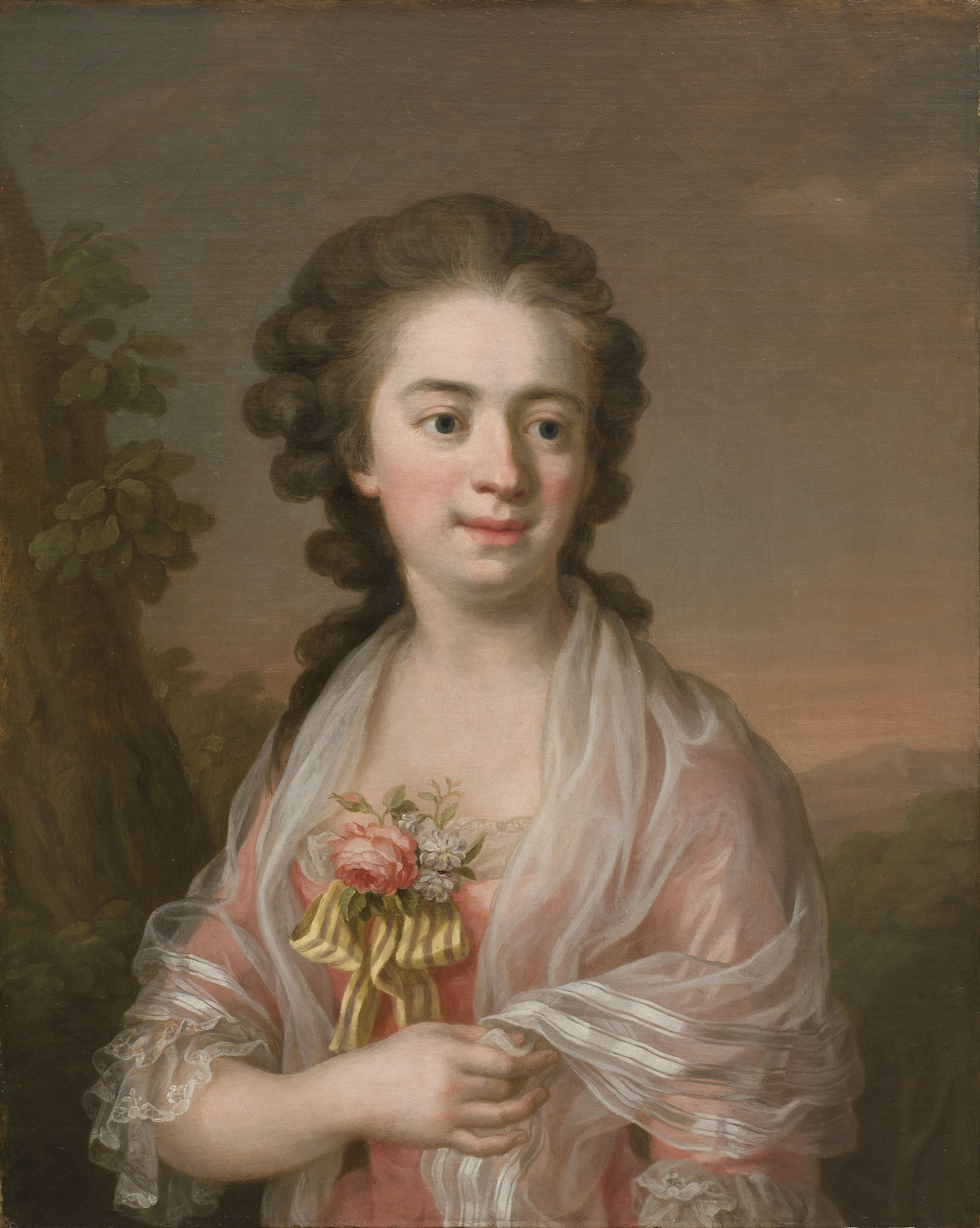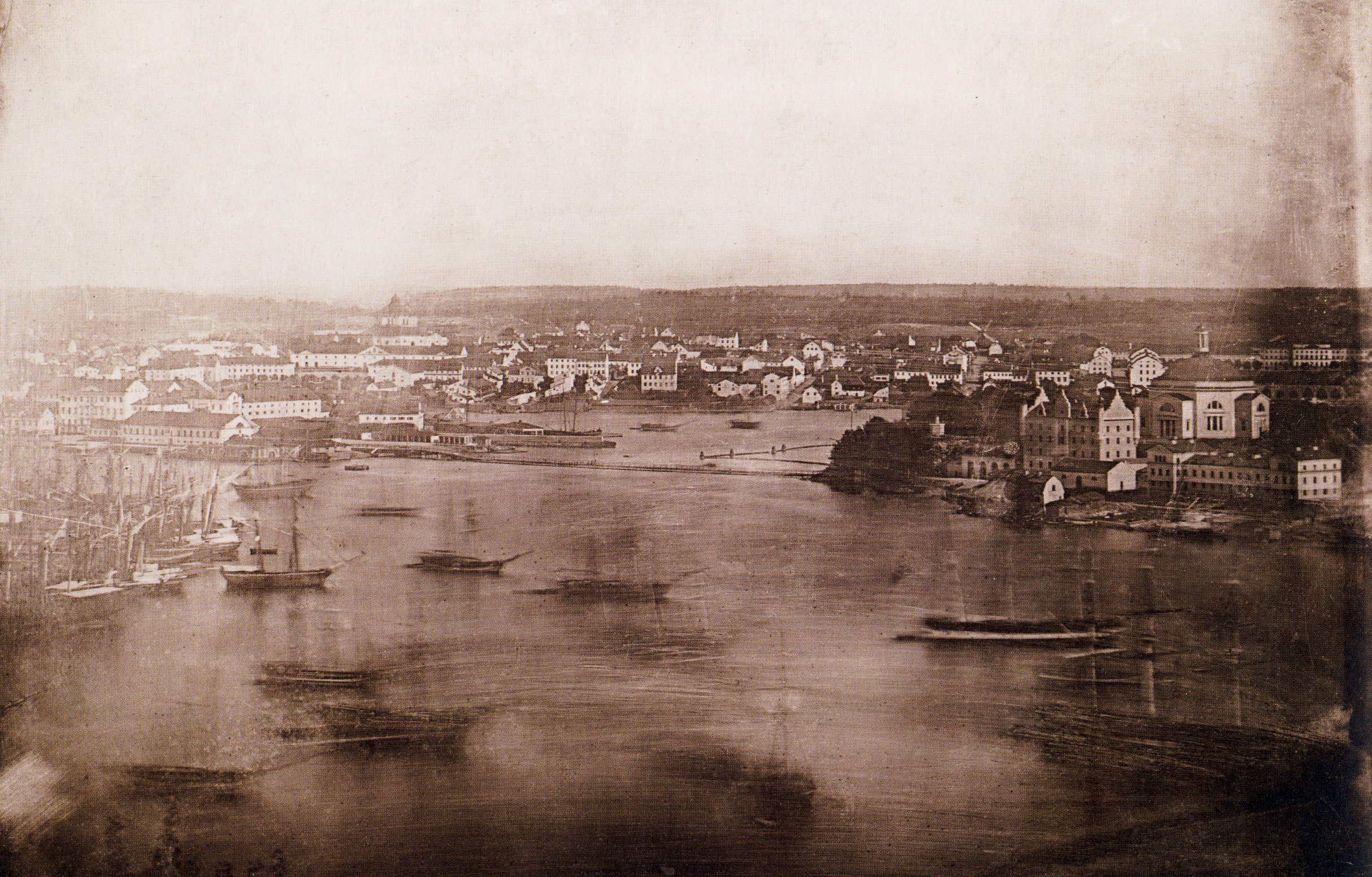|
Fruntimmersällskapet För Fångars Förbättring
Fruntimmersällskapet för fångars förbättring ('Women's Society for the Reform of Prisoners') was a charitable society founded in Stockholm in Sweden in 1854. The purpose of the society was to visit female prisoners and work for their rehabilitation from a criminal life back in to society through religious and moral tuition and "spiritual nursing". History The society was co-founded in Stockholm by philanthropist Mathilda Foy, writer Fredrika Bremer, deaconess Maria Cederschiöld, writer Betty Ehrenborg and Emilia Elmblad, founder of the Stockholm home for reformed prostitutes. The initiative was a part of the contemporary Pietist movement, which encouraged religiously influenced social work among women. This very same movement had been the inspiration for the foundation of the Deaconess institution Ersta diakoni only three years prior, and all the founders of the society were also actively involved in the Deaconess institution. Despite resistance from the clergy and the pri ... [...More Info...] [...Related Items...] OR: [Wikipedia] [Google] [Baidu] |
Mathilda Foy
Mathilda (or ''Mathilde'') Foy (or ''Foj''), also known as ''Tante Esther'', (10 November 1813 – 1 November 1869), was a Swedish philanthropist and writer, known for her charitable work. She is known as a pioneer of the Sunday school, and as the co-founder of the charity organisation ''Fruntimmersällskapet för fångars förbättring'' ('Women's Society for the Improvement of Prisoners') in 1854. Biography Childhood Foy was born in Stockholm in 1813. She was the daughter of the British consul in Stockholm, George Foy, and his Swedish wife Mathilda Augusta Skoge. As a girl, Foy spent the summer of 1835 at the Medevi mineral spa with her parents. Her diary gives a detailed insight into life at the spa, both the daily practicalities and her thoughts and feelings. Cultural historian Gustaf Näsström, in his book , retells a love story from the diary that brings to mind Jane Austen writing a novel about events in Bath. Religious influences and Sunday school In Stockhol ... [...More Info...] [...Related Items...] OR: [Wikipedia] [Google] [Baidu] |
Fredrika Bremer
Fredrika Bremer (17 August 1801 – 31 December 1865) was a Finland, Finnish-born Sweden and Norway, Swedish Swedish literature, writer and feminism in Sweden, reformer. Her ''Sketches of Everyday Life'' were wildly popular in Britain and the United States during the 1840s and 1850s and she is regarded as the Swedish Jane Austen, bringing the Literary realism, realist novel to prominence in Swedish literature. In her late 30s, she successfully petitioned Charles XIV John of Sweden, King Charles XIV for legal majority, emancipation from her brother's wardship; in her 50s, her novel ''Hertha (novel), Hertha'' prompted a social movement that granted all unmarried Swedish women legal majority at the age of 25 and established Högre Lärarinneseminariet, Sweden's first female tertiary school. It also inspired Sophie Adlersparre to begin publishing the ''Home Review'', Sweden's first women's magazine as well as the later magazine ''Hertha (magazine), Hertha''. In 1884, she became ... [...More Info...] [...Related Items...] OR: [Wikipedia] [Google] [Baidu] |
Maria Cederschiöld (deaconess)
Anna Maria Cederschiöld (20 November 1815 in Växjö - 7 January 1892 in Lund) was a Swedish noble deaconess and nurse. She was a pioneer in the education of deaconesses and nursing in Sweden, and the first head of the first Deaconess institution in Sweden, Ersta diakoni, in 1851-1862. Life She was the daughter of the vicar in Forsheda, Kasper Hakvin Cederschiöld, and Helena Sofia Ingelman. She was engaged to her foster brother, but the engagement was broken by his death, an event which is thought to have caused her interest in religion and introduced her in religious circles. She was educated at home and managed a girls school in Lund in 1848-49, before she was promised the place as head of the future Deaconess Institution, which was at that point planned to be founded in Stockholm. In order to prepare herself, she studied the deaconess institution in Germany 1850-51, before she returned to take her place as head of the Ersta Diakoni in Stockholm, which was founded upon her r ... [...More Info...] [...Related Items...] OR: [Wikipedia] [Google] [Baidu] |
Betty Ehrenborg
Betty Ehrenborg, married name Posse af Säby (22 July 1818 – 22 July 1880), was a Swedish writer, psalm writer and pedagogue. She is regarded as the founder of the Swedish Sunday school. Life Katarina Elisabeth Ehrenborg was the daughter of the noble Parliamentary Ombudsman Casper Ehrenborg and the writer Anna Fredrica Carlqvist. She was raised at the family estate Råbäck at Kinnekulle. Her sister Maria Ulrika (Ulla) Ehrenborg was the wife of Bishop Ebbe Gustaf Bring. In 1842, she and her mother moved to Uppsala to be near her brother, Richard, who studied at Uppsala University. In Uppsala, she attended several of the university lectures, though she was merely a member of the civil audience and not a student, and she became a part of the Uppsala intellectual life of the 1840s. She worked as a governess in 1846–1848. She got to know Swedish Baptist pioneer brothers Gustaf Palmquist and Per Palmqvist in 1851. Ehrenborg traveled to England around that time, possibly with ... [...More Info...] [...Related Items...] OR: [Wikipedia] [Google] [Baidu] |
Emilia Elmblad
Emilia may refer to: People * Emilia (given name), list of people with this name Places * Emilia (region), a historical region of Italy. Reggio, Emilia * Emilia-Romagna, an administrative region in Italy, including the historical regions of Emilia and Romagna * Emilia, Łódź Voivodeship, a village in central Poland Arts * Emilia (Bulgarian singer) (born 1982), full name Emiliya Valeva, known by the mononym Emilia * Emilia Mernes, Argentine singer, known by the mononym Emilia * Emilia Rydberg, Swedish singer, also performing as Emilia Mitiku and by the mononym Emilia ** ''Emilia'' (album), 2000 self-titled album by Swedish singer Emilia Rydberg * Emilia (''Sítio do Picapau Amarelo''), a fictional character of the ''Sítio do Picapau Amarelo'' series * Emilia (''Othello''), a character in Shakespeare's ''Othello'' * ''Emilia'' (TV series), a Venezuelan telenovela * ''Emilia'' (play), a 2018 play by inspired by the life of the 17th century poet and feminist Emilia Bassano ... [...More Info...] [...Related Items...] OR: [Wikipedia] [Google] [Baidu] |
Pietist
Pietism (), also known as Pietistic Lutheranism, is a movement within Lutheranism that combines its emphasis on biblical doctrine with an emphasis on individual piety and living a holy Christianity, Christian life. Although the movement is aligned with Lutheranism, it has had a tremendous impact on Protestantism worldwide, particularly in North America and Europe. Pietism originated in modern Germany in the late 17th century with the work of Philipp Spener, a Lutheran theologian whose emphasis on personal transformation through spiritual rebirth and renewal, individual devotion, and piety laid the foundations for the movement. Although Spener did not directly advocate the Quietism (Christian contemplation), quietistic, legalistic, and semi-separatist practices of Pietism, they were more or less involved in the positions he assumed or the practices which he encouraged. Pietism spread from Germany to Switzerland, the rest of German-speaking Europe, and to Scandinavia and the Balt ... [...More Info...] [...Related Items...] OR: [Wikipedia] [Google] [Baidu] |
Deaconess
The ministry of a deaconess is a ministry for women in some Protestant, Oriental Orthodox, and Eastern Orthodox churches to provide pastoral care, especially for other women, and which may carry a liturgical role. The word comes from the Greek language, Greek (), for "deacon", which means a servant or helper and occurs frequently in the Christian New Testament of the Bible. Deaconesses trace their roots from the time of Jesus, Jesus Christ through to the 13th century in the West. They existed from the early through the middle Byzantine Empire, Byzantine periods in Constantinople and Jerusalem; the Clergy, office also existed in Western European churches. There is evidence to support the fact that the diaconate including women in the Byzantine Church of the early and middle Byzantine periods was recognized as one of the major non-ordained orders of clergy. The English separatists unsuccessfully sought to revive the office of deaconesses in the 1610s in their Amsterdam congregat ... [...More Info...] [...Related Items...] OR: [Wikipedia] [Google] [Baidu] |
Vagrancy (people)
Vagrancy is the condition of wandering homelessness without regular employment or income. Vagrants usually live in poverty and support themselves by travelling while engaging in begging, scavenging, or petty theft. In Western countries, vagrancy was historically a crime punishable with forced labor, military service, imprisonment, or confinement to dedicated labor houses. Both ''vagrant'' and ''vagabond'' ultimately derive from the Latin word ''vagari'', meaning "to wander". The term ''vagabond'' and its archaic equivalent ' come from Latin ''vagabundus'' ("strolling about"). In Middle English, ''vagabond'' originally denoted a person without a home or employment. Historical views Vagrants have been historically characterised as outsiders in settled, ordered communities: embodiments of otherness, objects of scorn or mistrust, or worthy recipients of help and charity. Some ancient sources show vagrants as passive objects of pity, who deserve generosity and the gift ... [...More Info...] [...Related Items...] OR: [Wikipedia] [Google] [Baidu] |
History Of Women In Sweden
The status and rights of Women in Sweden has changed several times throughout the history of Sweden. These changes have been affected by the culture, religion and laws of Sweden, as well as social discourses like the strong Feminism in Sweden, feminist movement. History of women in Sweden Viking age During the Viking Age, women had a relatively free status in the Nordic countries of Sweden, Denmark and Norway, illustrated in the Icelandic Grágás and the Norwegian Frostating laws and Gulating laws.Borgström Eva : Makalösa kvinnor: könsöverskridare i myt och verklighet (Marvelous women : gender benders in myth and reality) Alfabeta/Anamma, Stockholm 2002. (inb.). Libris 8707902. The paternal aunt, paternal niece and paternal granddaughter, referred to as ''odalkvinna'', all had the right to inherit property from a deceased man. In the absence of male relatives, an unmarried woman with no son could furthermore inherit the position as head of the family from a deceased ... [...More Info...] [...Related Items...] OR: [Wikipedia] [Google] [Baidu] |
1846 In Sweden
Events from the year 1846 in Sweden Incumbents * Monarch – Oscar I Events *28 June: The Church of Sweden Härnösand Cathedral is inaugurated. * December 22 - The guild A guild ( ) is an association of artisans and merchants who oversee the practice of their craft/trade in a particular territory. The earliest types of guild formed as organizations of tradespeople belonging to a professional association. They so ... system in Sweden is abolished by the '' Fabriks och Handtwerksordning'' and ''Handelsordningen''. * Trade and craft professions are opened to all unmarried women. * Adolf Eugene von Rosen and Georg Theodor Policron von Chiewitz proposes a regulation of Gamla stan. * The Swedish History Museum is founded. * Gothenburg becomes the first Swedish city to be lit up by voal gas.Hadenius, Stig, Nilsson, Torbjörn & Åselius, Gunnar, Sveriges historia: vad varje svensk bör veta, Bonnier Alba, Stockholm, 1996 * ''Den broderade plånboken'' by August Blanche * ''Dubbe ... [...More Info...] [...Related Items...] OR: [Wikipedia] [Google] [Baidu] |





